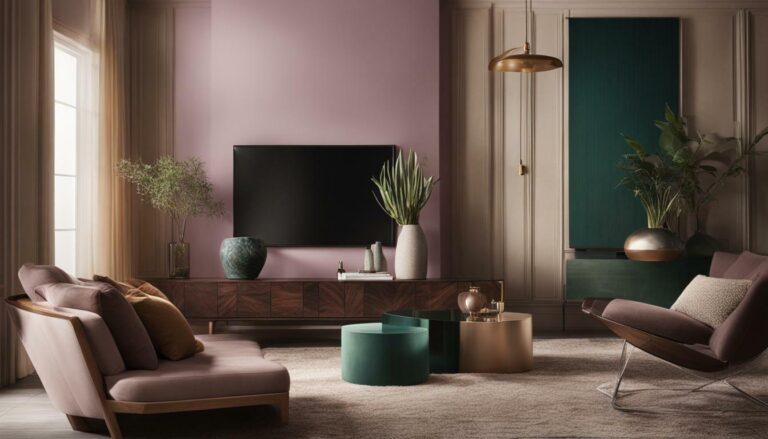At What Age is Losing Weight So Hard?
Losing weight can be a challenging journey that many of us embark on at some point in our lives. However, as we age, the process of shedding those extra pounds can become even more daunting. If you’ve noticed that losing weight has become increasingly difficult as the years go by, you’re not alone.
There are several factors that contribute to the weight loss difficulties that many individuals experience as they get older. These include changes in muscle mass, hormonal fluctuations, a slowing metabolism, and various lifestyle factors.
Key Takeaways:
- As we age, losing weight can become more challenging due to various factors.
- Changes in muscle mass, hormonal fluctuations, and a slowing metabolism can all contribute to weight loss difficulties.
- Lifestyle factors such as stress and sedentary behavior can also hinder weight loss efforts.
- Despite these challenges, there are strategies that can help manage weight effectively as we age.
- Focusing on overall health and well-being is essential for achieving and maintaining a healthy weight.
Changes in Muscle Mass
As we get older, our bodies go through various changes, including a natural decline in muscle mass. This process, known as age-related muscle loss or sarcopenia, can have significant impacts on our overall health and weight management.
One of the main consequences of muscle loss is its effect on calorie burning. Muscle is metabolically active tissue, meaning it requires energy (calories) to maintain. When we have less muscle mass, our bodies burn fewer calories at rest, making it easier to gain weight and harder to lose it.
Regular strength training exercises can help combat muscle loss and support weight loss efforts. By engaging in activities that target and stimulate our muscles, such as weightlifting or resistance training, we can preserve and even build muscle mass. Strength training also helps to increase our metabolism, allowing us to burn more calories throughout the day.
It’s never too late to start strength training. Even if you’ve never lifted weights before, incorporating resistance exercises into your routine can have significant benefits for maintaining muscle mass and managing weight as you age.
In addition to strength training, it’s important to prioritize overall physical activity and maintain an active lifestyle. Regular aerobic exercises, such as walking, swimming, or cycling, can help improve cardiovascular health and support weight loss efforts.
Benefits of maintaining muscle mass:
- Increased metabolism and calorie burning
- Improved strength and mobility
- Better balance and fall prevention
- Enhanced bone density and reduced risk of osteoporosis
By incorporating both strength training and aerobic exercises into your routine, you can effectively manage muscle loss, maintain muscle mass, and support your weight loss goals as you age.
Hormonal Changes
Hormonal changes can have a significant impact on weight gain as you age. These changes can affect both men and women and can contribute to challenges in maintaining a healthy weight.
During menopause, women experience a drop in estrogen levels. This hormonal fluctuation can lead to weight gain, especially around the belly area. The decrease in estrogen can affect metabolism and contribute to increased fat storage.
For men, there may be a decline in testosterone levels as they age. Testosterone plays a role in muscle mass and helps to regulate metabolism. Lower testosterone levels can make it more difficult to burn calories and maintain a healthy weight.
Another hormone that plays a role in weight management is growth hormone. Both men and women produce less growth hormone as they age, which can impact body fat regulation. Growth hormone helps to build and maintain lean muscle mass, which is crucial for a healthy metabolism.
“Hormonal changes can have a significant impact on weight gain as you age.”
Understanding the effects of hormonal changes on weight gain is essential in developing strategies for weight management. By addressing the hormonal imbalances through lifestyle changes and, if necessary, medical interventions, it’s possible to mitigate the impact on weight gain and promote a healthy weight.
| Hormone | Effect |
|---|---|
| Estrogen (in women) | Contributes to weight gain, particularly around the belly area |
| Testosterone (in men) | Declining levels can make it harder to burn calories and maintain muscle mass |
| Growth hormone | Decreased production can impact body fat regulation |
By addressing hormonal changes through targeted interventions such as hormone replacement therapy or natural remedies, individuals can work towards achieving a healthier hormone balance and managing weight effectively.
The Role of Hormones in Weight Management
In addition to their impact on weight gain, hormones also play a crucial role in overall weight management. Achieving a healthy hormone balance through proper nutrition, regular exercise, stress reduction, and sufficient sleep can support weight loss efforts.
It’s important to work with a healthcare professional to monitor hormone levels and develop a personalized plan that addresses individual hormonal imbalances. By taking a holistic approach to health and managing hormonal changes, it’s possible to overcome the challenges of weight gain and maintain a healthy weight as you age.
Slowing Metabolism
As you age, your metabolism naturally slows down, which means you burn fewer calories at rest. This decrease in metabolic rate can contribute to weight gain if your caloric intake remains the same. It’s important to be mindful of portion sizes and adjust your caloric intake to match your body’s changing needs as you age.
Age and metabolism are closely linked, and understanding how your metabolism changes can help you manage your weight effectively. Here are some key points to consider:
- Calorie Burning: Slowing metabolism means less energy expenditure, resulting in fewer calories burned throughout the day. This can make weight loss more challenging as you age.
- Weight Loss: A slower metabolism can impact weight loss efforts if you continue to consume the same amount of calories as before. Adjusting your caloric intake based on your age and activity level is crucial for maintaining a healthy weight.
“Understanding how metabolism changes with age is essential for successful weight management. It’s not just about eating less; it’s about eating smart and making choices that support your body’s changing needs.” – Dr. Jane Thompson, Nutritionist
By making conscious choices about your diet and lifestyle, you can support a healthy metabolism and manage your weight effectively as you age. Incorporating regular physical activity, such as aerobic exercises and strength training, can help boost your metabolism and increase calorie burning. Additionally, focusing on nutrient-dense foods and staying hydrated can support your overall health and weight management.

Lifestyle Factors
Certain lifestyle factors can make losing weight more difficult as you age. Increased stress levels can lead to weight gain, as stress hormones can increase hunger and promote fat storage.
Sedentary jobs and busy schedules can make it harder to find time for exercise, further contributing to weight gain. The lack of physical activity can result in a sedentary lifestyle, which is associated with weight gain and increased risk of chronic diseases.
Work-related challenges, such as long hours or a demanding workload, can also impact your ability to prioritize healthy habits. Balancing work commitments with self-care can be challenging, but it’s essential for maintaining a healthy weight.
Furthermore, major life changes, such as starting a family, can disrupt healthy eating and exercise routines. Lack of sleep, increased stress, and changes in daily routines can all contribute to weight gain during these transitions.
Quote: “Our modern lifestyles often involve high levels of stress, sedentary jobs, and busy schedules, making it challenging to prioritize healthy habits and maintain a healthy weight.” – Health Expert
It’s important to acknowledge and address these lifestyle factors to support your weight loss goals. Finding effective strategies to manage stress, incorporate physical activity into your daily routine, and adapt to new life circumstances can help you achieve and maintain a healthy weight.
Tips for Managing Weight as You Age
Despite the challenges of weight loss as you age, there are effective strategies you can implement to manage your weight. By incorporating these tips into your daily routine, you can prevent weight gain and achieve a healthier lifestyle.
1. Focus on Healthy Eating
One of the key factors in managing weight as you age is maintaining a healthy eating plan. Choose nutrient-dense foods that provide essential vitamins, minerals, and fiber. Incorporate plenty of fruits, vegetables, whole grains, lean proteins, and healthy fats into your diet. Be mindful of portion sizes, and avoid mindless snacking or emotional eating.
2. Engage in Regular Physical Activity
Regular physical activity is crucial for weight management and overall health. Aim for a combination of aerobic exercises, such as walking, swimming, or cycling, and strength training exercises to build muscle mass. This helps increase your metabolism and burn calories more efficiently. Consider incorporating activities that you enjoy, such as dancing or gardening, to make exercise more enjoyable and sustainable.
3. Stay Hydrated for Weight Management
Proper hydration is essential for maintaining optimal health and managing weight. Drinking an adequate amount of water throughout the day can help control hunger, boost metabolism, and prevent overeating. Keep a water bottle handy and aim to drink at least 8 cups (64 ounces) of water daily.
4. Manage Stress Levels
Stress can contribute to weight gain and hinder weight loss efforts. Find healthy ways to manage stress, such as practicing relaxation techniques, engaging in hobbies, or seeking support from loved ones. Consider incorporating stress-management activities, such as yoga or meditation, into your daily routine.
5. Prioritize Quality Sleep
Sleep plays a crucial role in weight management. Aim for 7-9 hours of quality sleep each night. Inadequate sleep can disrupt hormone levels, leading to increased hunger and cravings. Establish a relaxing bedtime routine, create a calming sleep environment, and prioritize consistent sleep patterns.
6. Take a Holistic Approach to Health
Optimal weight management is not solely about diet and exercise; it requires a holistic approach to health. Prioritize mental well-being by practicing self-care activities, engaging in hobbies, and maintaining social connections. Focus on overall wellness and balance in all aspects of your life.

By following these tips for managing weight as you age, you can maintain a healthy weight, improve overall well-being, and enjoy a higher quality of life.
Importance of Overall Health
When it comes to managing your weight, it’s essential to understand that health is more than just a number on the scale. A healthy lifestyle extends beyond weight management and encompasses various habits that promote overall well-being. By prioritizing your health, you can achieve a balance between physical, mental, and emotional wellness.
One of the key components of a healthy lifestyle is maintaining a nutritious diet. Consuming a variety of nutrient-dense foods ensures that your body receives the necessary vitamins, minerals, and antioxidants to function optimally. Incorporating fresh fruits and vegetables, whole grains, lean proteins, and healthy fats can support weight management and improve overall health.
In addition to a healthy diet, regular physical activity plays a crucial role in both weight management and overall health. Engaging in moderate-intensity aerobic exercises, such as brisk walking, swimming, or cycling, can help burn calories and increase cardiovascular fitness. Additionally, incorporating strength training exercises helps preserve muscle mass, boost metabolism, and shape your body.
Another important aspect of maintaining a healthy weight is ensuring adequate sleep and managing stress levels. Poor sleep patterns and chronic stress can disrupt hormonal balance and contribute to weight gain. Prioritizing quality sleep and implementing stress management techniques, such as meditation, deep breathing, or engaging in activities you enjoy, can positively impact both your weight and well-being.
“The groundwork of all happiness is health.” – Leigh Hunt
Investing in your mental health is equally important for effective weight management and overall well-being. Prioritizing self-care activities, seeking social support, and managing emotional well-being through practices like therapy or mindfulness can enhance your motivation, reduce emotional eating, and provide a solid foundation for a healthier lifestyle.
Healthy Lifestyle Checklist:
- Eat a balanced, nutrient-rich diet
- Engage in regular physical activity
- Get enough sleep
- Manage stress through relaxation techniques
- Prioritize mental health and emotional well-being
By adopting healthy lifestyle habits, you can effectively manage your weight while simultaneously reaping the benefits of improved overall health. Remember, your well-being goes beyond numbers on a scale, and by focusing on holistic health, you can achieve long-lasting success in weight management.
| Benefits of a Healthy Lifestyle | Weight Management Strategies |
|---|---|
| Reduced risk of chronic diseases such as heart disease, diabetes, and certain cancers | Focus on nutrient-dense foods |
| Improved energy levels and mood | Control portion sizes |
| Enhanced cognitive function and memory | Incorporate regular physical activity |
| Stronger immune system | Mindful eating practices |
| Reduced stress and improved mental well-being | Stay hydrated |
Conclusion
In conclusion, as we age, weight loss can become more challenging due to various age-related factors. Muscle loss, hormonal changes, a slowing metabolism, and lifestyle factors can all contribute to weight loss frustrations. However, it’s important to remember that with the right strategies and a holistic approach to health, it is possible to overcome these weight loss obstacles and achieve a healthy weight.
To overcome age-related weight loss challenges, focus on incorporating regular exercise into your routine, including both cardiovascular and strength training exercises. Engaging in strength training can help maintain muscle mass and boost metabolism. Additionally, prioritize healthy eating habits by consuming nutrient-dense foods and watching portion sizes.
Stress management and getting adequate sleep are also crucial for weight management. High stress levels can lead to weight gain, so finding healthy coping mechanisms and self-care practices can be beneficial. Prioritizing quality sleep can support weight loss efforts by regulating hormones involved in hunger and metabolism.
Remember, weight loss is not just about the number on the scale. Prioritizing overall health through lifestyle habits such as regular physical activity, a balanced diet, stress management, and adequate sleep, is key to achieving and maintaining a healthy weight. By implementing these strategies, you can overcome age-related weight loss challenges and improve your overall well-being.
FAQ
At what age is losing weight so hard?
Losing weight can become more challenging as we age due to various factors such as muscle loss, hormonal changes, slowing metabolism, and lifestyle factors. While there is no specific age when weight loss becomes difficult for everyone, these factors tend to contribute to weight loss struggles as we get older.
What causes muscle loss as we age?
Muscle loss, also known as sarcopenia, is a natural part of the aging process. It can be caused by a combination of factors such as decreased physical activity, hormonal changes, and reduced protein synthesis. Engaging in regular strength training exercises can help maintain muscle mass and support weight loss efforts.
How do hormonal changes affect weight gain as we age?
Hormonal changes can play a role in weight gain as we age. During menopause, women may experience a drop in estrogen levels, leading to weight gain, particularly around the belly. Men may experience a decline in testosterone levels, which can make it more difficult to burn calories. Additionally, both men and women produce less growth hormone as they age, which can impact body fat regulation.
Does metabolism slow down with age?
Yes, metabolism naturally slows down with age, which means we burn fewer calories at rest. This decrease in metabolic rate can contribute to weight gain if our caloric intake remains the same. It’s important to be mindful of portion sizes and adjust caloric intake to match our body’s changing needs as we age.
What lifestyle factors can make losing weight more difficult as we age?
Certain lifestyle factors can make losing weight more challenging as we age. Increased stress levels can lead to weight gain, as stress hormones can increase hunger and promote fat storage. Sedentary jobs and busy schedules can make it harder to find time for exercise, while major life changes, such as starting a family, can disrupt healthy eating and exercise routines.
What are some tips for managing weight as you age?
To manage weight effectively as you age, it’s important to focus on nutrient-dense foods, watch portion sizes, engage in a mix of aerobic exercise and strength training, stay hydrated, manage stress levels, prioritize quality sleep, and take a holistic approach to health and well-being. These strategies can support weight loss efforts and overall health.
Is health just about weight?
No, health is not solely determined by weight. Focusing on overall well-being, including eating a healthy diet, engaging in regular physical activity, getting enough sleep, managing stress, and prioritizing mental health, can contribute to maintaining a healthy weight and overall health.
How can I overcome weight loss obstacles as I age?
While weight loss can be more challenging as we age, it is possible to overcome the obstacles. By implementing strategies such as regular exercise, healthy eating habits, stress management, and adequate sleep, you can effectively manage your weight and achieve and maintain a healthy lifestyle.






